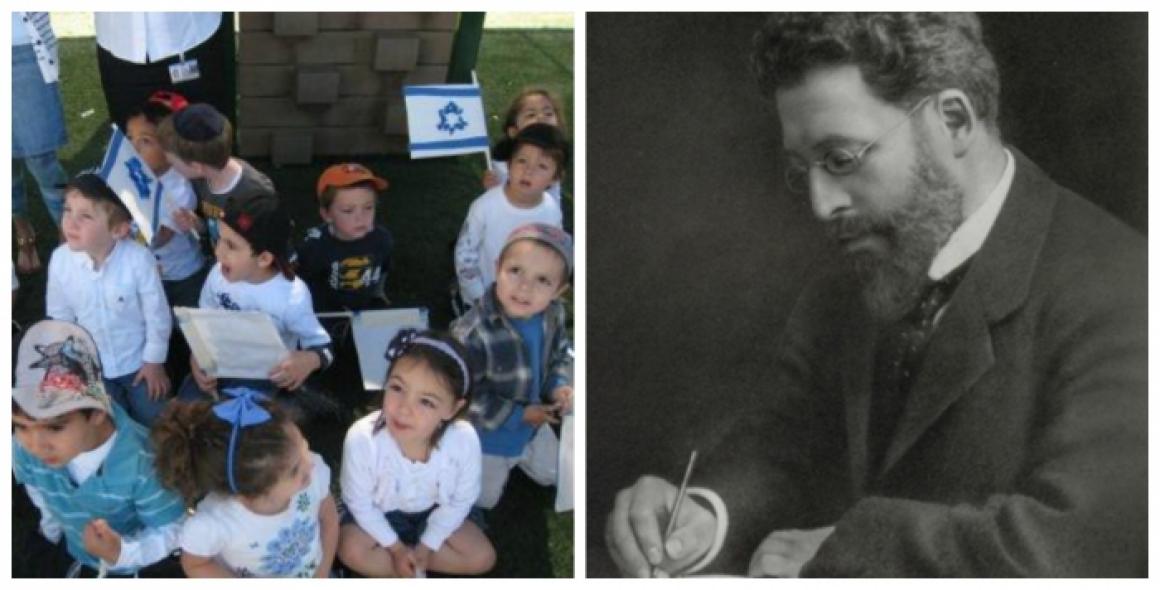
Back to the Future
One century ago, the great American educator John Dewey – in his classic, Democracy and Education (1916) – aptly observed that “the past is the past precisely because it does not include what is characteristic in the present.” Yet, he continued, “the past is a great resource for the imagination; it adds a new dimension to life…. A mind that is adequately sensitive to the needs and occasions of the present actually will have the liveliest of motives for interest in the background of the present….” In that spirit, I have, over the past many summers, devoted a week or so to archival research, looking at the papers of people who have significantly contributed to thought and action relating to issues that continue to engage the attention of contemporary Jewish educators. It is a look backwards with an eye to better understanding the present and imagining and working toward a more promising future.
This year, my turn “back to the future” took me to the reading room of the Jewish Theological Seminary and the papers of Israel Friedlaender (1876-1920). Briefly, Friedlaender was a Russian-born Jew who attended Rabbinical School in Berlin, earned a PhD in Semitics and, after serving briefly on the faculty of a German university, was recruited by Solomon Schechter to join the faculty of the fledgling Jewish Theological Seminary, in 1903. Beyond his considerable literary and scholarly productivity, Friedlaender’s communal activities were prodigious. His organizational leadership and involvement extended to such groups as the Bureau of Jewish Education of New York (of which he was the first chairman), the Educational Alliance, the Executive Committee of the Federation of American Zionists, the American Oriental Society, the Publication Committee of the Jewish Publication Society, the American Academy of Jewish Research, the Histadrut Ivirit, the Menorah Society, Young Israel, the Intercollegiate Zionist Association and the Joint Distribution Committee. Friedlaender also served as the first President of Young Judea.
Tragically, the life of this scholar and communal activist was cut short. During a humanitarian mission to the Ukraine on behalf of the Joint Distribution Committee, in summer 1920, Friedlaender and a colleague were murdered. Nearly a century after his death, however, there is much that can be gleaned from the boxes of Friedlaender’s papers archived at the Jewish Theological Seminary.
Three recurrent themes in his writings and correspondence attracted my attention: Friedlaender’s reflections on Zionism; his strong interest in experiential education; and his serious engagement with so many organizations in the ecosystem of Jewish education. In each case, Friedlaender’s perspective points to contemporary trends and enduring tensions. A look at each is instructive.
For Friedlaender, Judaism “is not merely a religion in the accepted sense of the word, a body of abstract ideas about the Invisible, but rather the embodiment of these abstract ideas, or ideals, in concrete institutions, in a nation, a commonwealth a state.” On that backdrop, Friedlaender was an active Zionist. That said, Friedlaender believed passionately in the capacity of Diaspora Jewish communities to flourish, both integrated into the societies of which they are a part and distinctive, but only if rooted in Jewish learning. With that in mind, and seeing America emerging as the leading Jewish center of the Diaspora, Friedlaender tirelessly committed his time and energy to the cause of Jewish education. Both the interplay between “homeland” and “home” and sustaining Jewish learning remain issues of enduring significance.
Friedlaender’s work with young people – from Young Israel, to Young Judea, to the Menorah Society and beyond – was animated by a commitment to engaging learners in direct and shared experience, so that successive generations could contribute afresh to the Jewish narrative. Friedlaender, as many Jewish educators past and present, held both essentialist and constructivist views about Jewish life and Jewish education; he grappled with how to negotiate the tension between facilitating learner-centric experiences, while pursuing particular goals and directions – a continuing challenge.
As a faculty person at the Jewish Theological Seminary engaged with many “outside” Jewish educational entities, Friedlaender sometimes encountered the displeasure of Solomon Schechter. For Schechter, “the welfare and the development of the Seminary and the institutions connected with it” was of paramount concern. Friedlaender, in “excusing” his considerable involvement with BJE, affirmed: “I would consider myself a traitor to Judaism if I were to have no heart for the crying needs of Jewish primary education, without which neither Judaism nor Jewish institutions nor higher Jewish learning have any chance in the future.” For Friedlaender, the ecosystem of Jewish education was mutually reinforcing, and broader considerations of Jewish education in a community eclipsed parochial, institutional interests. Issues of “turf” and competition remain very much alive, a century later.
That themes from the Friedlaender files resonate as current is tribute to the vision of this remarkable individual. His impact early in the twentieth century was considerable. His legacy, for those engaged in the work to which he was so very dedicated, serves as a goad and inspiration for the present and future, as it did in the past.
